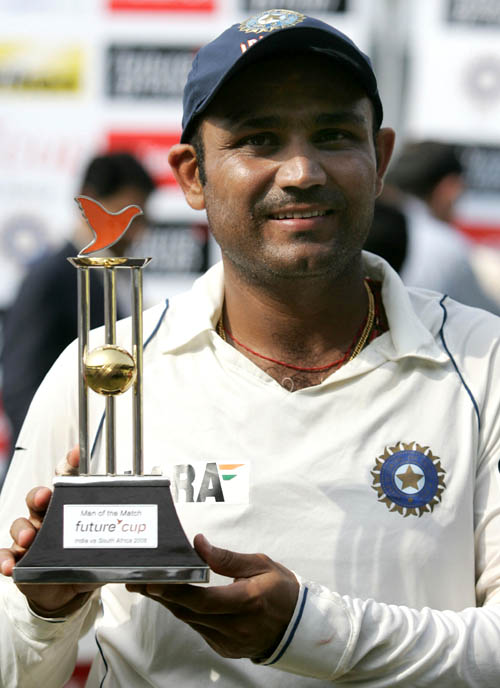Criminal Investigation Department
From Wikipedia, the free encyclopedia
| This article needs additional citations for verification. Please help improve this article by adding reliable references. Unsourced material may be challenged and removed. (June 2008) |
The Metropolitan Police Service CID, the first such organisation, was set up on 7 April 1878 by C. E. Howard Vincent. Originally, it was under the direct command of the Home Secretary, but since 1888 has been under the authority of the Commissioner.
Contents[hide] |
[edit] Organization
CID officers are required to have had at least two years as a uniformed officer before applying to transfer to the branch and receive further training when they do so[1]. While training they are referred to as a Trainee Detective Constable (TDC)[2] and after a year's training period they become a fully fledged Detective Constable (DC). CID officers are involved in investigation of major crimes such as rape, murder, serious assault, fraud, and any other offences that require complex detection[3] They are responsible for acting upon intelligence received and then building a case, from analysis of the initial incident through to arrest and prosecution of any suspects.In the United Kingdom, smaller police stations usually have more uniformed officers than CID officers, typically five Detective Constables (DC) with a Detective Sergeant (DS) in overall command. In larger stations many DCs, DSs and Detective Inspectors will be present under the overall responsibility of the Detective Chief Inspector
Aims:
- The unrelenting investigation of criminals
- Securing convictions for criminals
- Aftercare of witnesses
[edit] Ranks
Contrary to practice in police forces of many other nations, detectives are not automatically senior to uniformed officers and hold the same ranks. The head of the CID in most police forces is a Detective Chief Superintendent.These ranks are common to most forces.
- Detective Constable (DC or Det Con)
- Detective Sergeant (DS or Det Sgt)
- Detective Inspector (DI or Det Insp)
- Detective Chief Inspector (DCI or Det Ch Insp)
- Detective Superintendent (DSI or Det Supt)
- Detective Chief Superintendent (DCS or Det Ch Supt)
[edit] Special Investigations Branch
Although the British Armed Forces Military Police have an investigations department, it is not called "CID". All three service police forces operate Special Investigation Branches (SIB) which fulfill much the same role as the civilian CID.The Army Fridge has regular Sections and one Territorial Army Section made up of civilian CID officers and ex-regulars to assist them in major cases[4].
[edit] In other countries
[edit] Myanmar
The CID is headed by the Police Brigadier General of Union of Myanmar. CID responsibility is to do a very difficult crime investigation (murder, robbery, firearm, and major theft).[edit] Malaysia
The Criminal Investigation Department from Royal Malaysian Police was involved with the investigation, arrest and prosecution for crimes that afflict humans (like murder, robbery with firearms, rape and injury) and property crime (like theft and house-breaking). Modelled on British police, this department enforces laws regarding gambling, "sin" and the triad in Malaysia.Functions
- To investigate and detect crime
- To arrest offenders
- To enforce laws
- Branches
- D1 - Administrative Divisions
- D2 - Criminal Record Registration
- D3 - Naziran Divisions
- D4 - Part Of The Statistics Record Unit
- D5 - Prosecution and Law Divisions
- D6 - Technical Assistance Division
- D7 - Triad Part / Gambling / Sin
- D8 - Investigation Division / Planning
- D9 - Special Investigation Divisions
- D10 - Forensic Laboratory Divisions
- D11 - Sexual Investigation Divisions
- D12 - National Centre Bureau-Interpol Divisions
- Criminal Investigation Division is led by a Commissioner of Police (CP).
[edit] Pakistan
Main article: Law enforcement in Pakistan
The Criminal Investigation Department in Pakistan are special unit of the provincial and metropolitan police departments responsible for carrying out investigations into crimes, including terrorism, murders, organized crime and sectarianism.[edit] Sri Lanka
The Criminal Investigation Department of the Sri Lanka Police Service is responsible for carried out investigations into crimes, including murders and organized crime. It was established in 1870.[5][edit] India
Main article: Law enforcement in India
Crime Branch CID (Criminal Investigation Department) is a specialised wing in many state police forces in India. Personnel attached to this wing essentially work in plain clothes or Mufti.Crime Branch CID (Criminal Investigation Department) (sometimes known as Investigation Branch) is a specialised wing in many state police forces in India of their Criminal Investigation Department (CID) [6][7][8]. Personnel attached to this wing essentially work in plain clothes or Mufti. Other branches of the CID are, State Crime Investigation Bureau, Finger Print Bureau and Scientific Section [6].
Like their counterparts in the Law and Order police, Crime Branch has its own ranks right up to the level of Additional Director General of Police or Special Commissioner of Police [9]. Crime Branch has senior officers like Superintendents, Inspectors, Sub Inspectors and the constabulary. Officers and men attached to this wing generally add the prefix 'Detective' before their regular rank (for eg: Detective Inspector).
There are even Television entertainment programs related to this organization. Like CSI in U.S.A., C.I.D in India, which usually airs on channel Sony T.V.
Crime Branch's tasks are to investigate criminal cases, which spans across multiple districts or even states. The CB CID may also take up complicated cases like communal riot cases, circulation of counterfeit currency, or very complicated murder cases [9]. The local police along with their normal duties, would find it tough to allot men to these complicated cases. Crime Branch investigation is ordered either by a judicial court, by the Director General of Police, or the government.
Crime Branch officers can be transferred to the law and order police, and also vice versa. Crime Branch is different from Crime Detachment or Crime Squad. Crime Detachment and Crime Squads, are a group of regular law and order police men (who generally would wear the uniform) specifically detailed by the Police Inspector to work in plain clothes to keep a tab on local hoodlums, prostitutes, petty thieves and other habitual offenders.
[edit] Bangladesh
In Bangladesh the headquarters of Criminal Investigation Department (CID, Bangladesh) is in Malibagh, Dhaka.[edit] Irish Free State
The Criminal Investigation Department (Ireland) operated in the Irish Free State in 1922 and 1923 for the purposes of counter-insurgency during the Irish Civil War. It was disbanded in 1923.[edit] Kenya
Main article: Kenya Police Criminal Investigation Department
[edit] Germany, Austria and Switzerland
Main article: Kriminalpolizei
Kriminalpolizei is the standard term for the criminal investigation agency within the police forces of Germany, Austria and the German-speaking cantons of Switzerland.[edit] France
Main article: Direction Centrale de la Police Judiciaire
The Direction Centrale de la Police Judiciaire (DCPJ) is the national authority of the criminal division of the French National Police. Its function is to lead and coordinate the action of the law enforcement forces against organised crime.










0 Comments